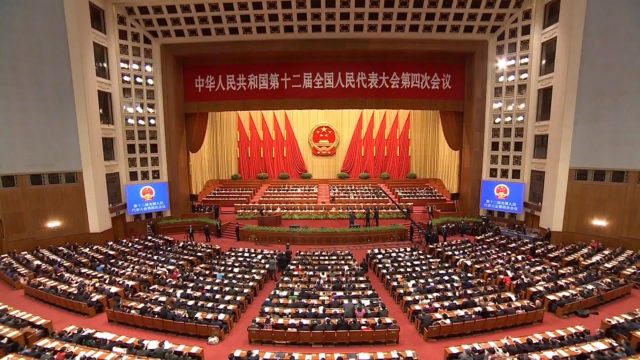Home life in China got an overhaul with the implementation of the country’s new domestic violence law and the baby boom of the two-child policy.
China’s Two Sessions have focused on legislation pertaining to people’s well being – with the Anti-Domestic Violence Law generating headlines and praise from women’s rights groups worldwide.
According to the All-China Women’s Federation, one in four married women have suffered violence in their marriages and more than 40 percent of children faced abused by their parents. This law is China’s first national law against domestic violence and extends protections to most victims of violence and abuse across the country.
To analyze this new law:
- Chen Tingting is the Asia Foundation’s program officer for women’s empowerment in China.
- Liu Huawen is a professor of international law at the Chinese Academy of Social Sciences.

From domestic violence to China’s aging population. As China gets older, how will the government cope? And does the new two-child policy make a difference?
Right now, about 15 percent of China’s population is over the age of 60. A much greater number is currently in the workforce – about five workers for every retiree. But the United Nations predicts that by 2050, China is expected to have half a billion people over age 60 – a population that will increasingly use government-funded social services. And it will shrink to only 1.6 workers for every retiree.
The Chinese government is taking steps. It has shifted its policy on family planning – expanding to a two-child policy at the start of this year.
For a look at China’s graying generation:
- Dali Yang is a professor of political science at the University of Chicago.
- Haiyan Wang is managing partner of the China India Institute.

 CGTN America
CGTN America

